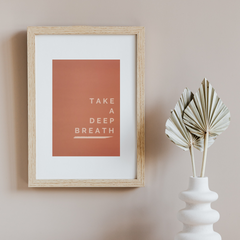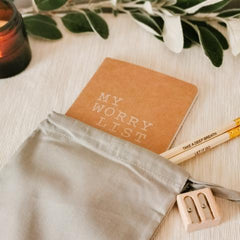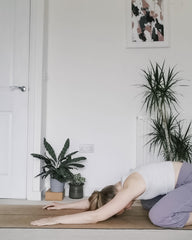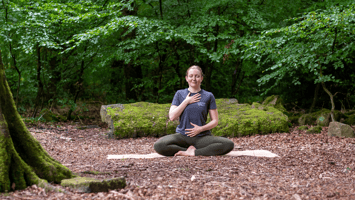What is anxiety? Anxiety is what we feel when we are worried, tense or afraid – particularly about...
Managing Anxiety in Uncertain Times
The announcement of a new national lockdown in England will no doubt have an impact (or further impact) on the mental health and wellbeing of a lot of the population.
You might have had feelings of anxiety previously, or you might be experiencing them now - symptoms of anxiety can include (but are not limited to) feeling restless or tense, increased heart rate, breathing rapidly, sweating, being unable to concentrate on one particular thing. I've put together a few tips on things which help me to manage anxiety, in the hope that they might relieve a little tension for you too.
1. Breathing Exercises
To reduce some of the physical symptoms, breathing exercises can often help. Try focusing on your breathing, and making your exhales longer than your inhales. Try breathing in for a count of 4, holding for 4 and breathing out for 6. Repeat it 5 times. How do you feel?
By slowing down your breath, you start to engage the parasympathetic nervous system (rest and digest, as opposed to fight and flight). If I feel worry or anxiety rising, I try to focus on my breath.

2. Worry Lists
This is a technique I first came across during CBT (Cognitive Behaviour Therapy). CBT aims to gradually change your thought processes, to help you better deal with unhelpful thoughts. Ever had a day where you feel like all you've done is worry about things that might never happen? This used to happen to me a lot and I still have days like this sometimes, but I find worry lists really helpful.
Wheneveryou're feeling worried about something - whether it's uncertainty around lockdown, thinking you'll forget to take out the bins, or forget your friend's birthday - write down the worry and continue with your day. You can then give yourself a designated 10-20 minutes or so of 'worry time' later in the day.

Sit down with your list and work through it - are these things you can control? If the answer is no, let go of that worry. If the answer is yes, can you do something to combat the worry now, or do you need to schedule in some time to address it in the coming days or weeks? Tick it off your to do list now or add it to your schedule, then let it go.
Ittakes a little practice, but can be a great way to reduce the amount of time you spend worrying and having thoughts go round and round in your own head.
3. Yoga
You’ve probably heard people saying that yoga relaxes their mind and allows them to switch off from the busyness of life. There is a lot of scientific evidence to back this up; research from Teker et al found that consistent yoga practice reduced symptoms of depression and led to a significant increase in serotonin levels and a decrease in the levels of cortisol. At the University of Wisconsin, Richard Davidson, Ph.D., also found that the left prefrontal cortex showed heightened activity in meditators, a finding that has been correlated with greater levels of happiness and better immune function. According to the British Psychological Society, the breathing techniques involved in yoga are a great way to relieve stress and soothe the mind, providing headspace, clarity and a way to calm down from hectic moments in life.
New to yoga? Spend a couple of minutes in child's pose - start on all fours, with your shoulders over your wrists and your hips over your knees. Widen your knees and bring your feet together so that your toes are touching. As you exhale, pull your hips towards your heels and bring your forehead down towards the floor. You can keep your arms stretched out in front of you, or bring them along the side of the body with your palms facing up – whichever variation you prefer. Breathe slowly and deeply, enjoying this relaxing pose.

4. Physical reminders
Sometimes it can be difficult to be aware of what you need, particularly if you are feeling very anxious. Having little notes or reminders around your home can be useful to prompt you - whether it's a reminder to take a deep breath, stretch it out, go for a walk, have a cuppa, write down your worries or let it go - whatever works well for you, physical reminders can be a great way to start building the habit and reducing your levels of anxiety.
Please don't hesitate to reach out via Instagram if you want to chat - we're all in this together and it's so important to talk about our mental health 💛 I've also put together some lovely gifts for people who are struggling with anxious thoughts - you can find the collection here.



